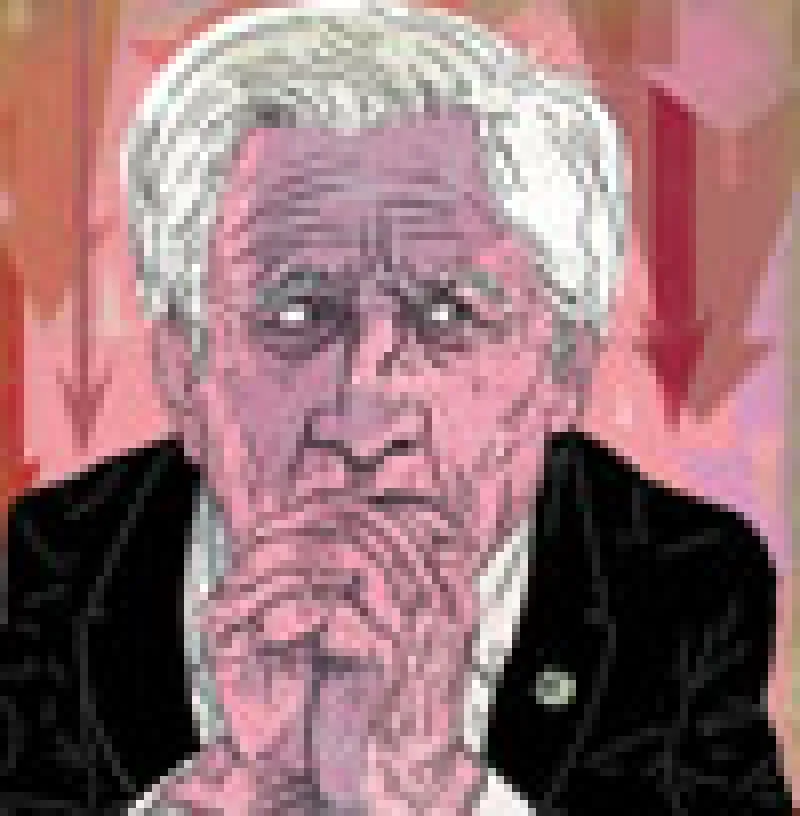Bankers & policymakers were in an upbeat mood at the annual meetings of the World Bank and International Monetary Fund in September 2006. The global economy was growing at a rate of just over 5 percent, the fastest in a generation, and financiers took advantage of the meeting’s Singapore location to focus on the economic boom underway in nearby China.
But in a conversation on the sidelines, Jean-Claude Trichet offered a more sober view. The European Central Bank president expressed concern about record-low credit spreads, which he felt indicated that investors were ignoring or underpricing the actual risks in securities markets. He would voice similar concerns in speeches and at regulatory forums in the months ahead.
Trichet’s caution served him well. When the global credit crisis erupted in August 2007 because of losses spreading out of the U.S. subprime mortgage market, he acted quickly. Money market rates had soared in Europe on the morning of August 9 after BNP Paribas halted redemptions from $2.2 billion of investment funds and Germany’s Bundesbank summoned bankers to organize a rescue of IKB Deutsche Industriebank. Trichet called a snap two-hour meeting of the ECB’s six-person executive council and got the members to endorse a massive €94.8 billion ($130.2 billion) injection of overnight funds into Europe’s interbank market.
"We considered it important to demonstrate to the market that we were the master of our short-term rates," he tells Institutional Investor in a recent interview. "That day we delivered all the liquidity that was demanded, at our policy rate." (To read a transcript of the interview, click HERE.)
The big cash injection eased money market tensions and prompted the Federal Reserve Board to follow with a similar intervention in the U.S. interbank market the next day. The move demonstrated that Trichet’s ECB was capable of taking quick, decisive action in a crisis, something that many skeptics of the bank and Europe’s single-currency project had long doubted.
"The speed with which they came to the market with liquidity still stands out as one of the best things policymakers did" after the credit crisis began, says Jim O’Neill, chief economist at Goldman Sachs Group in London.
Trichet’s confident leadership is a major reason why the euro, and the ECB, are such solid features of the international financial landscape after ten short years of existence. The euro has become a symbol of strength, ending 2008 at $1.40, nearly 70 percent above its 2000 low and at an all-time high on a trade-weighted basis. It has solidified its role as the world’s No. 2 reserve currency after the dollar; the euro’s share of international reserves held by central banks has risen to 27 percent from 18 percent a decade ago, while the dollar’s share has fallen to 63 percent from 71 percent, according to figures from the IMF. The number of European Union countries using the euro has grown from an initial 11 to 16 with the addition of Slovakia on January 1, and several other countries, including Poland, are accelerating efforts to adopt the currency, seeing it as a guarantor of safety in troubled times.
But if Trichet passed the first serious test of his presidency at the outset of the credit crisis, an even bigger challenge now looms. The financial turmoil has morphed into the worst worldwide slowdown since the early 1970s, claiming Europe’s economy — which many policymakers had considered relatively immune to U.S. weakness — as its latest victim. Output contracted in the second and third quarters of 2008, with Germany, Italy and Spain in recession, and activity has nosedived since the collapse of Lehman Brothers Holdings in September. Bank lending is slowing sharply, unemployment is climbing, and suddenly deflation looms as a possibility; inflation tumbled from 4.1 percent in July to 2.1 percent in November, near the ECB’s target of below, but close to, 2 percent.
The ECB, which raised rates as recently as July to counter inflation pressures, has struggled to adjust. It slashed its benchmark refinancing rate by 50 basis points in both October and November, and by 75 basis points more in December. But many economists consider the moves too little, too late. At 2.5 percent, the ECB’s refinance rate is well above the Fed’s target rate of 0 to 0.25 percent and the Bank of England’s 2.0 percent rate. The ECB’s relatively high rates have sparked a sharp rebound in the euro, to about $1.40 at the end of December from $1.25 in mid-November, a move that threatens to depress exports and aggravate Europe’s recession.
Charles Wyplosz, an economist at the Graduate Institute of International and Development Studies in Geneva, who believes the ECB should have cut rates by a full point in December, says the central bank was too preoccupied by the 2008 oil price spike to recognize the slowdown’s severity. "It just pains them to cut interest rates; they would prefer to do it slowly," he says. Marco Annunziata, chief economist at Italy’s UniCredit Group, agrees: "I’m worried that the European policy reaction is behind the curve."
With the economy slowing and pressure for action mounting, ECB council members have disagreed openly on policy since the December rate cut — a rare public show of disunity under Trichet. In a newspaper interview Axel Weber, president of the Bundesbank, expressed objections to cutting rates below 2 percent, the low set by the ECB earlier this decade, arguing that pushing rates further down could cause more problems than it solves. Some hawkish council members appear to believe that the Fed’s low interest rate policies earlier this decade were a major cause of the credit crisis, and they are reluctant to follow the U.S. central bank in slashing rates to zero and embarking on quantitative easing — effectively, printing money to buy Treasury bonds and other assets.
"They feel that they have to have a stability focus. They feel they have less liberty to undertake unorthodox measures," says Julian Callow, senior European economist at Barclays Capital in London. "They see the U.S. as embarking on a very dangerous strategy for the world’s reserve currency."
Other council members are willing to follow the Fed with extraordinary policy measures if necessary. Athanasios Orphanides, a Massachusetts Institute of Technology–trained economist who spent 17 years at the Fed before becoming governor of the Central Bank of Cyprus in 2007, said he "would not rule out any possibility" if the economy continues to weaken.
Trichet, who has been adept at forging consensus inside the council since taking over as president in November 2003, is clearly annoyed by the clashing comments and determined to maintain a unified voice. "There is only one porte-parole of the governing council, and that is the president," he tells II .
Trichet refuses to tip his hand ahead of the ECB’s January 15 council meeting, but he gives a stout defense of the central bank’s actions to date. Not only has the bank slashed interest rates by 175 basis points since October, it has been "very bold" in pumping unlimited liquidity into the interbank market. ECB policy shouldn’t be compared directly with the Fed’s, he adds, because the European economy is more prone to inflation and has a bigger public sector to cushion recessions.
"Ben [Bernanke] and the Open Market Committee, and I and my colleagues in the governing council, have shocks that are not alike," Trichet says. "And I trust that in these different circumstances we are taking the decisions that are appropriate."
The financial crisis has also exposed structural weaknesses in Europe’s monetary union. Credit spreads on euro-area governments have ballooned in the past year, reflecting investor concerns about the creditworthiness of some euro-area members. The yield on French bonds, which used to trade within a few basis points of that on Germany’s benchmark bonds, stood about 50 basis points higher than German bonds in December, while the yield spread on Greek bonds surged to 220 basis points. Italy’s cost of servicing its debt, which stands at an EU high of 104 percent of GDP, is set to rise substantially, limiting the government’s ability to adopt fiscal stimulus.
The lack of a common fiscal or supervisory authority has hamstrung EU governments. Where the incoming administration of President-elect Barack Obama is preparing an economic stimulus package expected to total more than $600 billion, or 4 percent of GDP, euro-area governments have clashed openly on fiscal policy. President Nicolas Sarkozy of France has been the most vocal advocate of aggressive stimulus, while Chancellor Angela Merkel of Germany has urged caution, even though her country has the greatest budgetary leeway of any major EU country. EU leaders did endorse a collective stimulus package of E 200 billion, or 1.5 percent of GDP, in Brussels in December, but actual spending commitments have amounted to less than 1.2 percent of GDP so far, and even that is not all new money, some economists contend.
"The fiscal response we’re seeing is not sufficient at all," says UniCredit’s Annunziata. "Without a coordinated expansion of fiscal policy in the euro area, there is very little room for countries to come ahead by themselves without being punished by the market."
Joaquín Almunia, the EU commissioner for economic and monetary affairs, insists that the European stimulus package is sufficient. He notes that EU governments have also committed E 1.8 trillion in bank guarantees and capital injections to safeguard the financial system. And Europe’s relatively large public sector could generate extra government spending of about 1 percent of GDP on unemployment benefits and welfare payments. "Our automatic stabilizers are much more powerful than in the U.S.," he says.
Europe’s patchwork of national regulatory and supervisory authorities has made forging a coherent response a struggle. Ireland enraged many of its partners when it unilaterally extended unlimited deposit guarantees to its banks at the height of the crisis, in late September, prompting a pell-mell rush by other capitals to adopt guarantees of their own or risk depositor flight. When the banking and insurance group Fortis faced a test of confidence, the governments of Belgium, Luxembourg and the Netherlands initially injected capital into the bank before the Dutch broke ranks and nationalized Fortis’s Dutch operations. Belgium and Luxembourg, with less firepower, arranged to sell most of Fortis’s operations in their countries to BNP Paribas, a deal that has been held up because of a legal challenge by Fortis shareholders.
Guy Quaden, governor of the National Bank of Belgium, says Europe should have a single authority to supervise big cross-border banks, but acknowledges that such a vision remains politically unacceptable because national treasuries ultimately have to foot the bill for any bailout. "One of the difficulties is that we don’t have integrated public finances,’" Quaden tells II . "In case of difficulty, it’s still the national taxpayer who has to pay."
Still, European policymakers have overcome many of the euro area’s structural shortcomings and responded to the crisis more rapidly and effectively than many skeptics had feared, thanks in no small part to the ECB, Trichet points out. When EU leaders in October hastily adopted a framework agreement on supporting the region’s banks, the central bank helped establish guidelines on the pricing of debt guarantees and capital injections to ensure that no governments would give any unfair advantage to their financial institutions.
"We have no federal government, we have no federal budget, and we have to cope with a situation that is obviously complex," Trichet says. "But I’m struck by one fact. At the setting up of the euro, there were a large number of observers that were saying, ‘It’s too bold, it won’t function, they put the cart before the horses’. Finally, after ten years, one sees that we have a single currency that is credible, that has preserved price stability and has been able to surmount a lot of exceptional difficulties."
The euro has indeed come a long way since its introduction on January 1, 1999, at a value of about $1.17. Launched amid high hopes by 11 of the then-15 EU countries, the single currency proceeded to plunge nearly 30 percent over the next two years, to just over 82 cents, depressed by Europe’s relatively weak economic performance compared with the U.S. and by shaky leadership at the ECB. The central bank’s first president, the late Wim Duisenberg, clashed frequently with EU governments over monetary and fiscal policy, and sometimes invited speculation against the euro with rash public comments.
In contrast, Trichet has burnished the central bank’s reputation. In part, he has benefited from the business cycle: The EU has grown at a faster pace than the U.S. for the past three years and has created more jobs — 14 million — between 2000 and 2007. More important, he has established clear authority over the ECB’s unwieldy governing council and strong credibility in financial markets, using the diplomatic skills and political clout that he developed over three decades as a presidential adviser, senior Treasury official and central bank governor in France. The best measure of Trichet’s leadership is that "you don’t hear dissenting voices from the board," says Alexandre Lamfalussy, who headed the ECB’s forerunner in the 1990s, the European Monetary Institute, and who spoke before the recent clash of comments.
Trichet is far from alone in seeing the euro as a source of much-needed stability. Europe’s economic woes in the early 1990s were greatly aggravated by currency turmoil, which triggered major devaluations of the British pound, Italian lira and Spanish peseta. Such ructions are a thing of the past, EU officials aver. "The euro has been a success during the good times, and now the euro is proving to be an extremely useful tool to limit risks and protect us against external shocks," says EU commissioner Almunia.
The euro’s influence has led several countries to hasten plans to join. Poland’s prime minister Donald Tusk recently set a target of 2012 for his country to adopt the euro, and politicians in Denmark and Sweden, which rejected the euro in referendums earlier this decade, are talking of making a fresh push for entry. "The current crisis is indicating it’s a lot safer to be inside than outside EMU," says Philip Lane, an economist at Trinity College Dublin.
The euro’s advantages could pale, however, if the region follows the U.S. into a deep recession. In November the European Commission slashed its forecast for the euro area’s 2009 growth rate to just 0.1 percent from 1.6 percent; a month later the ECB forecast a decline of 0.5 percent. Private sector analysts are more pessimistic still: Economists at Goldman Sachs see a drop of 1.4 percent.
By its nature, the ECB is less activist than the Fed in responding to economic downturns. The size of the governing council—which grows to 22 members in January with the addition of Slovakia’s central bank governor—and a tradition of consensus inclines the bank toward cautious moves. "The ECB behaviorally is a supertanker," says Willem Buiter, an economist at the London School of Economics and Political Science and a former member of the Bank of England’s Monetary Policy Committee. "It is a body that is not capable of drastic changes of course because it operates by consensus."
Different mandates also explain the different approaches of the world’s two leading central banks. U.S. law requires the Fed to control inflation and promote growth, but the Maastricht Treaty gives the ECB the exclusive task of maintaining price stability. As Buiter puts it, "The Fed is taking a risk, quite deliberately, with medium-term inflation. The ECB is not willing to take that risk."
Many ECB officials believe the financial crisis has vindicated their stability-oriented approach over the Fed’s activism. They believe the Fed erred by keeping its benchmark rate at just 1 percent in 2003 and 2004, and by insisting that central banks shouldn’t try to prick asset price bubbles. Central banks should "lean against the wind" by taking account of credit and money supply growth in setting interest rates, as the ECB does, the bank’s vice president, Lucas Papademos, told policymakers at a conference in Frankfurt in November. "Central banks, by monitoring these developments, can provide early warning signals" of instability, he said.
The ECB’s role as the only federal economic policymaking body in the EU — "an irreplaceable anchor of stability," as Trichet puts it — reinforces the bank’s cautious approach. "This calls for the monetary policy stance to be always designed precisely to deliver price stability in the medium term," Trichet tells II . "This solid anchoring also contributes to protect against the possible threat of deflation, which is not the case at present."
Trichet has some grounds for optimism. The interbank market has responded to the central bank’s liquidity injections; the spread between the three-month Euribor and the ECB’s refinancing rate dropped to about 78 basis points at the end of 2008 from about 150 basis points in October. That spread is still high, though, compared with typical precrisis levels of about 10 basis points. Meanwhile, economic activity continues to contract, increasing pressure on the central bank to take more-aggressive easing steps.
The LSE’s Buiter predicts that the ECB will cut its benchmark rate to zero and embark on quantitative easing by the end of 2009, some months after the Bank of England does so. Barclays Capital’s Callow agrees. "They’ll be dragged kicking and screaming" to taking unorthodox policy measures, he says.
Trichet says the ECB will do its best to rebuild confidence, but he insists that the central bank alone can’t save Europe from the crisis. "Central banks and governments have demonstrated a remarkable capacity to take bold decisions on time," he says. "It is essential that the private sector regain confidence in itself. Confidence is the ingredient which is now lacking the most."






